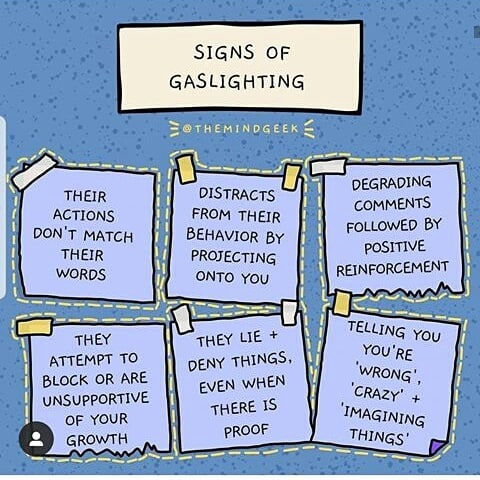Word-Of-the-Week #881: Gaslighting
June 24, 2021 by Susan Clarke
Gaslighting – manipulating (someone) by psychological means into questioning their own sanity.
Do you know who Betty Broderick is? We just finished watching the Netflix miniseries and one expert witness claimed that her husband had been gaslighting her for years. Then I had a conversation with a neighbor who spoke about being gaslighted. That felt pretty eerie since it was in the same week!
So I chose this week to feature “What is Gaslighting? This type of psychological abuse leaves survivors questioning every memory they have.” It just happens to be a great follow up to Hubis last week too!
You’re overreacting. It wasn’t that bad.
You’re just being emotional.
That never happened—you’re imagining it.
Any of these accusations alone could drive a person crazy, but when they’re part of a regular barrage of criticism aimed at controlling an individual, they’re more than rude—they’re abusive.
Called “gaslighting,” this type of abuse uses statements like the above to create doubt in a person’s mind by making them think, basically, that they’re going insane, says Janie McMahan, licensed marriage and family therapist.
The name comes from a ‘30s play called Gas Light in which the main character attempts to drive his wife crazy by dimming the lights in their home, which were powered by gas, and then denies the lights are changing. (Then the movie version was released in 1944 with Ingrid Bergman and Charles Boyer.)
This type of psychological abuse is part of the power and control found in domestic abuse, says McMahan. “Gaslighting makes [survivors] doubt themselves and not see the real issue, which is that they’re being abused.” It’s not uncommon that, after a while, a survivor will start to think, “Well, is this right? Am I really not justified in feeling this way?” says McMahan.
McMahan remembers sitting at dinner one night with a friend and her boyfriend, who was known to be emotionally abusive. “He called her ‘an f-ing bitch,’” remembers McMahan. When his girlfriend called him out on it, he replied earnestly with, “I didn’t say anything. You must be hearing things.”
Gaslighting is often found in conjunction with other types of abuse, such as physical or verbal. Abusers may try to convince the survivor that what they remember happening, in fact, never did. Or, abusers will ask their partners, “Why can’t you just get over it?”
McMahan says gaslighting may also come at the start of a relationship. Abusers want their partners to begin doubting themselves from the get-go. “They [survivors] begin thinking they’re a little bit ‘off,’ emotionally and mentally,” says McMahan. Essentially, they begin thinking they can’t trust their instincts. Their self-esteem can plummet. They feel less than the other person—less intelligent, less capable. McMahan says it can lead to the survivor not having a sense of self, believing they no longer have an identity or a voice. “It keeps them in these relationships,” McMahan says.
Lastly, know that gaslighting is a type of manipulation, says McMahan, and anyone can fall victim. “It happens across the board. It can happen to men and those in same sex relationships. Gaslighting is very subtle. It’s not until you’re pretty deep into it that you realize it.”
This week’s focus is looking for any signs of gaslighting. Has anyone in your life ever made you doubt yourself? Or told you that you overreact and/or are too emotional? Do you trust your instincts and intuition?
I LOVE feedback! Join my Facebook community on my FUN-damentals Fan Page.


